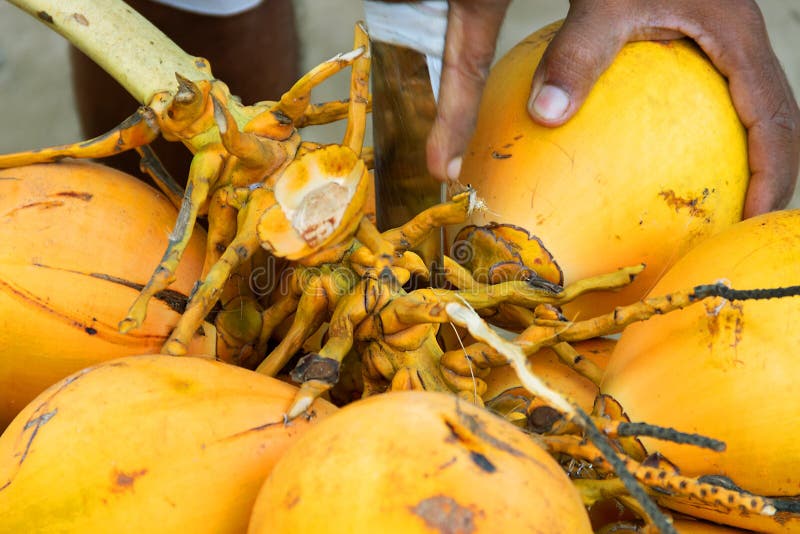The Future Of Petrol Prices In Nigeria: Dangote Refinery And NNPC's Influence

Table of Contents
The Dangote Refinery's Projected Impact on Petrol Prices
The commissioning of the Dangote Refinery represents a significant turning point for Nigeria's petrol market. Its impact on petrol prices is projected to be substantial, driven primarily by increased domestic supply and the potential for enhanced market competition.
Increased Domestic Supply and Reduced Reliance on Imports
- Massive Refining Capacity: The Dangote Refinery boasts a massive refining capacity, initially projected to process 650,000 barrels of crude oil per day. This significantly exceeds Nigeria's current domestic consumption, potentially eliminating the need for substantial petrol imports.
- Reduced Import Costs: Currently, Nigeria spends billions of dollars annually importing refined petroleum products. The Dangote Refinery's output will dramatically reduce these import costs, freeing up valuable foreign exchange reserves.
- Mitigation of Logistical Challenges: Importing refined petroleum products often involves logistical bottlenecks and delays, leading to price fluctuations and supply shortages. Domestic production will significantly reduce these challenges, leading to a more stable supply.
- Projected Output and Impact: While precise figures fluctuate, the refinery's potential to meet a significant portion, if not all, of Nigeria's petrol needs is undeniable, directly impacting the price at the pump.
Potential for Price Competition and Market Liberalization
The entry of the Dangote Refinery introduces a significant competitor to the NNPC's dominance in the Nigerian petrol market. This increased competition has the potential to:
- Drive Down Prices: A competitive market typically leads to lower prices for consumers as companies strive to attract customers. The Dangote Refinery's presence could exert downward pressure on petrol prices.
- Promote Market Efficiency: Competition can foster efficiency improvements across the industry, potentially leading to better quality and more reliable fuel supply.
- Accelerate Deregulation: The increased competition may push for further deregulation of the Nigerian petrol market, leading to even greater price transparency and consumer choice. However, the extent of deregulation will also depend on government policies.
- Market Dynamics: The actual impact on price will depend on various factors, including the pricing strategies adopted by both Dangote and NNPC, as well as government regulations.
NNPC's Role in Shaping Petrol Prices
The Nigerian National Petroleum Corporation (NNPC) continues to play a significant role in shaping petrol prices in Nigeria, largely through its subsidy regime and its existing refining capacity.
NNPC's Subsidy Regime and its Implications
- The Cost of Subsidies: The Nigerian government has for years subsidized petrol prices, leading to substantial financial burdens on the national budget. These subsidies have placed a strain on public finances, diverting resources from other crucial sectors.
- Potential for Subsidy Removal: The government has been exploring the possibility of removing fuel subsidies, which would likely lead to a significant increase in petrol prices in the short term, but potentially lead to long-term fiscal stability.
- Public Opinion: Public opinion on subsidy removal is divided, with concerns about the potential impact on the cost of living for ordinary Nigerians. The government needs to carefully manage the transition to minimize social unrest.
- Future Scenarios: The interplay between subsidy removal, increased domestic production from the Dangote Refinery, and NNPC's operations will determine the future trajectory of petrol prices.
NNPC's Refining Capacity and its Integration with the Dangote Refinery
- Existing Refineries' Performance: NNPC's existing refineries have faced challenges with operational efficiency and output. Their limited capacity and frequent breakdowns have contributed to Nigeria's reliance on imports.
- Potential for Collaboration: Collaboration between NNPC and the Dangote Refinery could create synergies, improving efficiency and potentially lowering costs. This could involve joint ventures or other forms of cooperation.
- Potential for Competition: Alternatively, NNPC and the Dangote Refinery could operate as independent competitors, with the potential for a dynamic market where prices are determined by supply and demand.
- Public-Private Partnerships: The possibility of public-private partnerships between NNPC and private sector players, including Dangote, could unlock greater efficiency and investment in the Nigerian refining sector.
External Factors Influencing Petrol Prices in Nigeria
Besides the domestic factors, several external influences significantly impact petrol prices in Nigeria.
Global Crude Oil Prices and Exchange Rate Fluctuations
- Global Oil Market Volatility: Global crude oil prices are highly volatile, influenced by geopolitical events, OPEC decisions, and global demand. Fluctuations in global oil prices directly affect Nigeria's import costs and, consequently, domestic petrol prices.
- Exchange Rate Risk: The Naira's exchange rate against the US dollar plays a crucial role. A weaker Naira increases the cost of importing refined petroleum products, leading to higher petrol prices.
- International Oil Market Dynamics: Understanding the dynamics of the international oil market is essential for predicting the future trend of petrol prices in Nigeria. Factors such as global economic growth and the transition to renewable energy sources also influence prices.
Geopolitical Factors and Supply Chain Disruptions
- Geopolitical Instability: Global political instability in oil-producing regions can disrupt supply chains and lead to price spikes. Nigeria is susceptible to these external shocks.
- Supply Chain Disruptions: Any disruptions to global oil supply chains, whether due to conflict, natural disasters, or other unforeseen events, can significantly impact petrol prices in Nigeria.
- Global Instability Impact: Events such as wars or sanctions in major oil-producing countries can dramatically alter the global oil market and affect the price of petrol in Nigeria.
Conclusion
The future of petrol prices in Nigeria is complex and depends on a delicate interplay between the Dangote Refinery's operational success, NNPC's policies, and global market dynamics. While the Dangote Refinery holds immense potential for stabilizing prices and increasing domestic supply, the success of this endeavor hinges on effective collaboration with NNPC and prudent government regulation. The continued impact of global oil prices and exchange rate volatility cannot be underestimated. Understanding these intricate factors is crucial to predicting and managing future petrol prices in Nigeria. Further research and ongoing monitoring of these factors are essential for making informed decisions about the future of petrol prices in Nigeria. Stay informed about developments in the Nigerian petroleum sector to better understand how these factors will influence the cost of petrol in the coming years.

Featured Posts
-
 X Blocks Jailed Turkish Mayors Facebook Page Opposition Protests Trigger Action
May 10, 2025
X Blocks Jailed Turkish Mayors Facebook Page Opposition Protests Trigger Action
May 10, 2025 -
 Strengthening Financial Cooperation Joint Venture Between Pakistan Sri Lanka And Bangladesh Capital Markets
May 10, 2025
Strengthening Financial Cooperation Joint Venture Between Pakistan Sri Lanka And Bangladesh Capital Markets
May 10, 2025 -
 Nhl Playoffs Oilers Vs Kings Expert Predictions And Best Bets For Tonight
May 10, 2025
Nhl Playoffs Oilers Vs Kings Expert Predictions And Best Bets For Tonight
May 10, 2025 -
 Trump Appoints Jeanine Pirro As Dc Top Prosecutor Fox News Role And Implications
May 10, 2025
Trump Appoints Jeanine Pirro As Dc Top Prosecutor Fox News Role And Implications
May 10, 2025 -
 Vegas Golden Knights Defeat Blue Jackets Hill Makes 27 Saves
May 10, 2025
Vegas Golden Knights Defeat Blue Jackets Hill Makes 27 Saves
May 10, 2025
